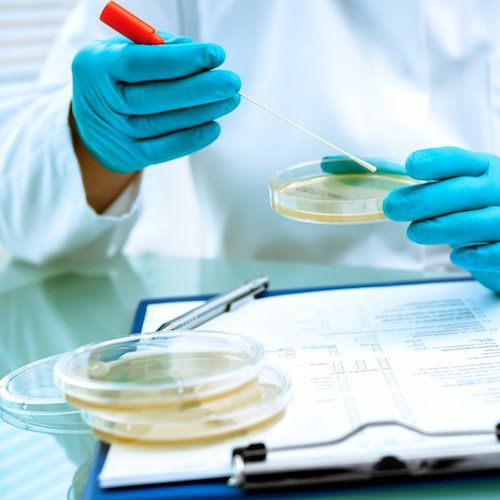In 2009, the United States Pharmacopeia (USP) issued harmonized reference standards for the Microbiological Examination of Non-Sterile Products. While AM Life Science (AMLS) does not offer services that directly support method validation of biological sample data, many of our personnel have strong QC backgrounds. Furthermore we understand the connection between the quality of the sampling environment and how it better enables the collection of accurate samples.
The two standards break down as USP 61 for Microbial Enumeration Tests that determine the allowable number of microorganisms in a testing area and USP 62 for Tests for Specified Microorganisms that determine the presence of specific microorganisms.
The updated USP standards are critical components of process and method validation within pharmaceutical and biopharm facilities.
The USP 61 Updates
The updated USP 61 reference includes stronger testing requirements for the total aerobic microbial count (TAMC) and the total combined yeasts and mold counts (TYMC).
– To perform an accurate TAMC test, you should place the TAMC filter on the Tryptone Soya Agar (TSA) media and incubate at 30-35 degrees Celsius for 3-5 days.
– To perform an accurate TYMC test, you should place the TYMC filter on the Sabouraud Dextrose Agar (SDA) media and incubate at 20-25 degrees Celsius for 5-7 days.
When testing is complete, the results must be within the two-fold specification of the organism tested. No retesting is allowed, whereas the previous USP 61 version allowed for a 25-gram sample to be retested.
The two-fold acceptance criterion for microbiological quality breaks down as such:
- 101 CFU: 20 is the maximum acceptable count
- 102 CFU: 200 is the maximum acceptable count
- 103 CFU: 2000 is the maximum acceptable count
[Read the Full FAQs at USP.org]
The USP 62 Updates
The updated version of the USP 62 reference includes testing for additional microorganisms. The updated list now includes:
- Salmonella
- Pseudomonas aeruginosa
- Staphylococcus aureus
- Eschericihia coli
- Candida albicans (newly added)
- Clostridia species (newly added)
- Bile-Tolerant Gram-Negative Bacteria (newly added)
– The original microorganisms in the first-half of the list include more stringent requirements for testing, incubation, and growth measurement to determine a pass/fail.
– For the newly-added microorganisms, the USP 62 reference includes standard testing requirements.
For example, the test for candida albicans requires incubating on the Sabouraud Dextrose Agar (SDA) media at 20-25 degrees Celsius for 3-5 days. If there is growth, then incubate for another 1-2 days. The goal is to examine the colonies to determine distinct morphology. If there is no growth or if the medium is absent of candida albicans, then the product complies with the test.
[Read the Full FAQs at USP.org]
AMLS Services Enable Stronger Adherence to USP 61 and 62
Adherence to USP 61 and 62 enable Quality Control Microbiologists to accurately report microbiological levels in process samples. When routine testing results fall out of specification, an investigation is initiated to discover root cause and to establish corrective and preventative actions. AMLS adds strength to this adherence by building and qualifying a well controlled sampling environment, thus eliminating the environment as a root cause of the out of specification result.
To further discuss working with our company for your next biopharm cleanroom project, contact our team today.

